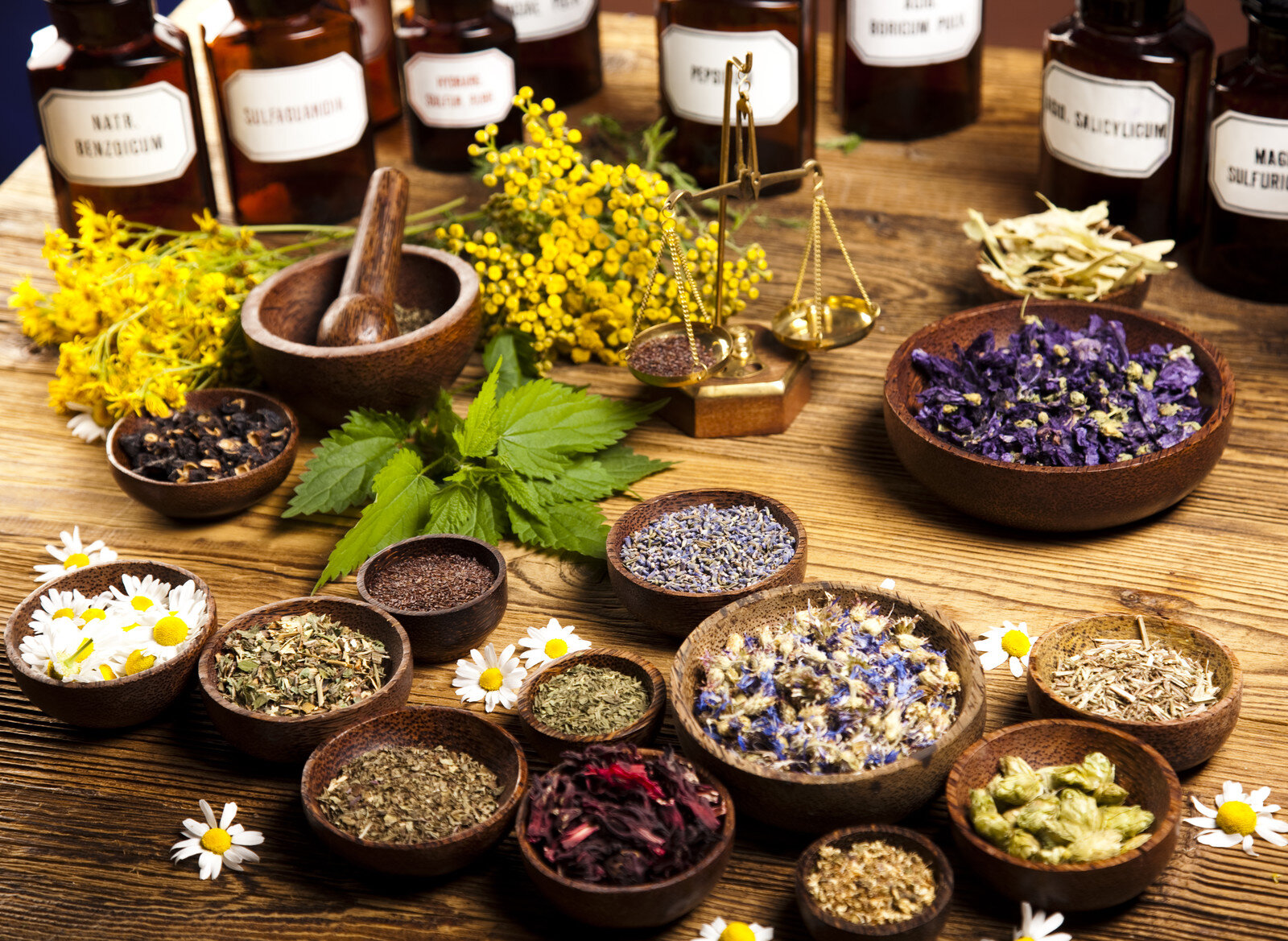Healing Herbs
QUICK GUIDE FOR HERBAL MEDICINE
If you have made the decision to commit to living your best life possible, you know that health and well-being is a journey and not a destination. Zanata’s provides a road map to support you on your journey. We strongly believe that in order to achieve your goal you must aim towards a balance of mind, body and spirit. This can be done in a variety of ways; diet, exercise, meditation, aromatherapy, herbology, acupuncture, message therapy, and much more. Natural remedies are a good way to achieve your goal without the burdensome side effects and high cost of drugs.
Herbal medicine or Phytotherapy is the treatment or prevention of disease using plants, plant parts, and preparations made from them. Herbal medicine is one of the oldest recorded forms treatment and is as effective today as it was then. Plants can absorb the rich nutrients, vitamins and minerals provided by the earth. These active substances can be used in remedies to support health and well-being. The proper use of herbs alone or in conjunction with other herbs can synergistically enhance balance and bring forth your desired results.
Using herbs is rather simple, however does require some precautions. Ensure to read the precautions and safety tips before using herbs or consult your physician, Naturopath or Herbalist for guidance on use. There are numerous benefits to using herbs, from supporting allergies, to GI issues to skin care. It would be impossible to give you everything you need to know in this short guide, however, here is some food for thought.
How it works
Herbs can be used in several ways as a complement or alternative. Research has shown benefits of herbal preparations for the organs, systems and functions of the body. The chemical constituents extracted from the many different plants can be used to prevent or improve certain health conditions. Herbs can be prepared as; capsules, extracts, syrups, teas, tinctures, infusions, and decoctions.
“Let food be our medicine, and medicine be our food.”
Herbs used for --
Brain – Ginger, Gingko Bilboa, Gotu Kola, and Rosemary
Eyes – Bilberry, Eyebright, Ginkgo, and Yarrow
Emotional Health – Rose petals, Schizandra, and Mimosa Bark
Heart Health – Hawthorne, Astragalus, Bilberry, Cayenne, Garlic, and Ginkgo
Lungs – Osha Root, Yerba Santa, Dong quai, Eucalyptus, Licorice, Rose Hips, and Ginger
Skin and Hair – Burdock root, Alfalfa, Gingko, Horsetail, Aloe, Calendula, Dandelion, and Chamomile
Digestive Health – Dandelion, Fennel, Milk Thistle, Aloe, Chamomile, Garlic and Ginger
Immune Support – Echinacea, Goldenseal, and Elderberry
Pain and Inflammation – Devil’s Claw, Wild Yam, Rosemary, Lavender, Garlic, Stinging nettle, Ginger, Curcumin and Horsetail
Women’s Health – Black Cohosh and Dong Quai
Men’s Health – Ashwagandha and Saw Palmetto
Safety/Recommendations
Herbs are an excellent complement and/or alternative to medicine. When used as directed in most cases herbs are generally recognized as safe. Points to consider when using essential oils…
· Remember that natural does not mean harmless
· If you are pregnant consult your physician before use
· Only purchase herbs from a reliable source
· Take precaution when using herbs on children and elderly
· Remember that dosage varies with age
· Ensure you become familiar with the properties, toxicity, contra indication, application method and precautions of all herbs you wish to use before use. Contact your physician, Naturopath or Herbalist for more information.
References:
Bach, P. (2002). Prescription for Herbal Healing: An Easy-to-Use A-to-Z Reference to Hundreds of Common Disorders and Their Herbal Remedies. New York, NY: Penguin Putnam Inc.
Britton, J. (2012). The Herbal Healing Bible. New York, NY: Chartwell Books, INC.
Weiss, R. & Fintelmann, V. (2000). Herbal Medicine (2nd ed.). New York, NY: Thieme
